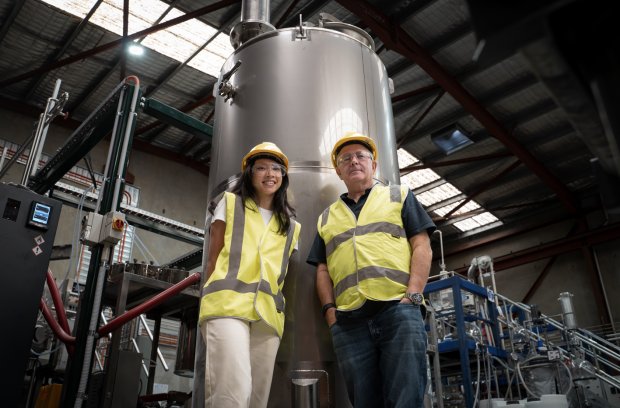
Lululemon backs enzymatic recycler
Recycling mixed fibres paves the way to creating true circularity for the industry.

11th December 2024
Innovation in Textiles
|
Canberra, Australia
Having already developed enzymes capable of recycling nylon 6.6 and polyester fibres, Canberra, Australia-headquartered Samsara Eco has now extended its portfolio with new enzymes for breaking down nylon 6 into its original building blocks that can be reused repeatedly without losing quality.
The company’s proprietary platform creates enzymes capable of breaking down plastics at speed, scale and with precision.
“Our latest breakthrough makes it possible to believe future textiles will be made from waste and excess production, not fossil fuels,” says Paul Riley, CEO and co-founder of Samsara Eco.”Our ability to recycle nylon 6, nylon 6.6, polyester and mixed fibres – including coloured and dyed blends – is a gamechanger for the textile and fashion industry. Apparel is very rarely made from a single fibre so being able to recycle mixed fibres is the only way we can create true circularity for the industry.
“Pushed by incoming regulation, industries are becoming increasingly mindful of the entire lifecycle of their products and their carbon impact. We’re providing a way to address both concerns with a real scalable textile-to-textile recycling solution.”
The latest achievement follows intensive research, lab testing and bench-scale proof of concept.
Samsara Eco will collaborate with customers in textiles and automotive – two industries where nylon 6 is prevalent – as well as strategic partners, to trial the new enzymes on nylon 6 products and blended materials from its innovation campus in Jerrabomberra, New South Wales, set to open mid-2025.

Business intelligence for the fibre, textiles and apparel industries: technologies, innovations, markets, investments, trade policy, sourcing, strategy...
Find out more